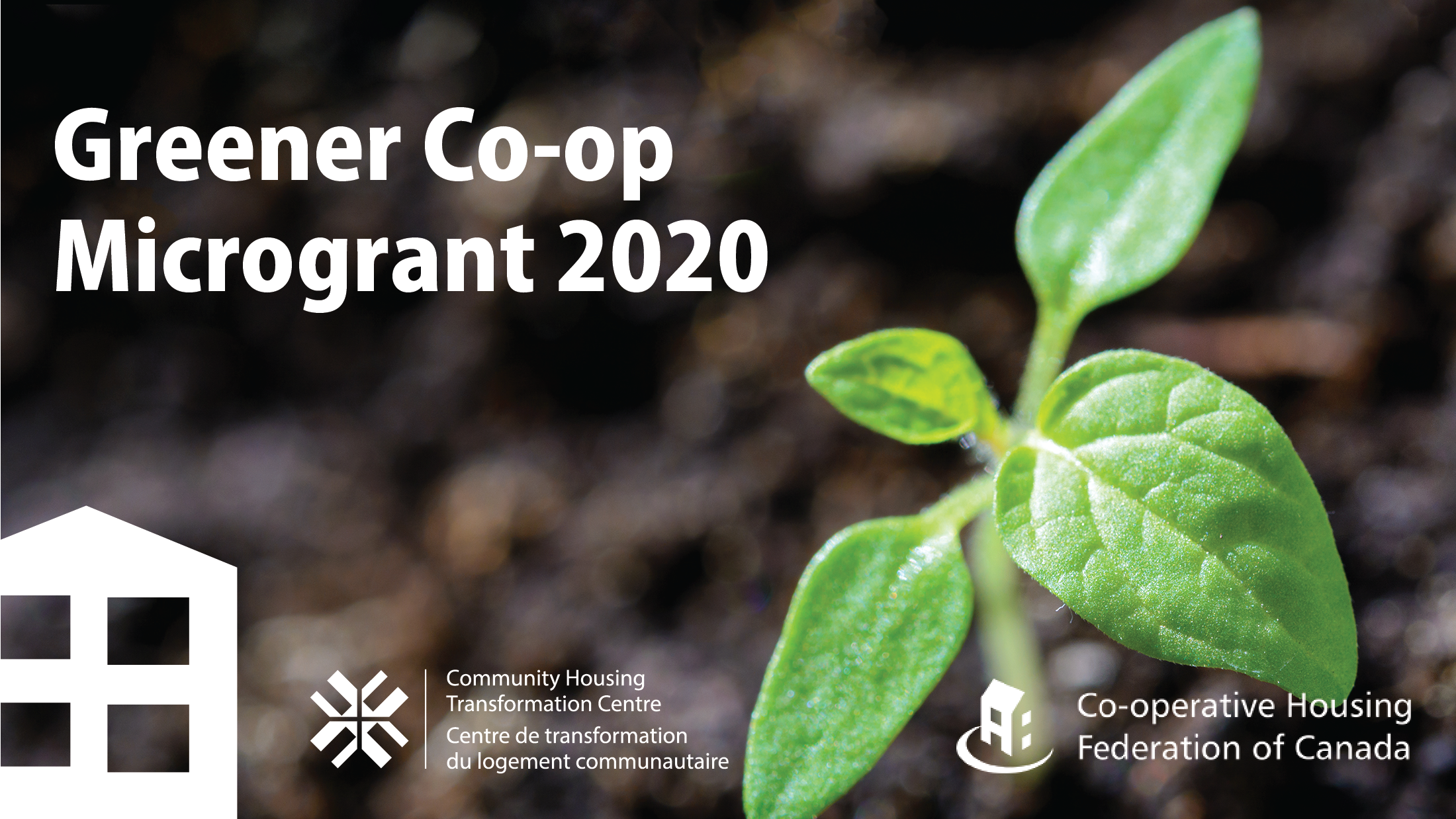The Microgrant program was launched in 2016 by CHF Canada and the Agency for Co-operative Housing. It is offered this year for the fifth consecutive time. This program funds small projects–anywhere from $500 to $4,000–that reduce greenhouse gases, improve air quality, or help co-ops adapt to climate change, and inspire others with best practices. Previously funded projects range from composting, community gardens, e-bike charging stations and bike storage, solar panels for powering gardening tools, lighting upgrades and many more. This year alone 42 housing co-ops received just under $130,000 in microgrants.
The Greener Co-op Microgrant has been in existence since 2016. It is a collaboration between the Agency for Co-operative Housing and CHF Canada. It was initiated to offset carbon emissions from staff travelling across the country. The Agency had set aside money to contribute to a carbon offsetting fund when the idea came up to keep the funds in the co-op housing sector to fund energy conservation measures and other sustainability initiatives. It’s a very simple program where housing co-ops submit an application form with details on an initiative they plan to implement. Grants range from $500 to a limit of $4,000 and are available to CHF Canada member housing co-ops for projects that reduce greenhouse gases and energy consumption (e.g., installing LED lights and indoor and outdoor clotheslines); improve air quality; reduce water use (e.g., installing low- flow toilets and fixtures, installing rain barrels); help your housing co-op adapt to climate change (e.g., planting trees to shade a southern exposure, creating a stormwater garden); increase food self-sufficiency through community gardens; encourage housing co-op members to re-use, recycle and repurpose through education and recycling programs; support active transportation solutions (e.g., providing bike storage or racks); advance sustainability in their housing co-op.
Gardening for the Future
As presented, this project will involve 2,458 units and an estimation of 5,408 tenants toward environmental footprint reduction initiatives. As one of the results, the coops that will benefit from this project would save annually approximately $31,000 in energy cost.
The positive impact of the microgrants help to offset carbon emissions by reducing energy consumption, and by absorbing carbon dioxide through the planting of trees. The program is also effective in raising awareness about the co-ops’ capabilities to have a long-lasting and positive impact on the environment. Once implemented, the initiatives’ impacts are felt for many years to come.
Keywords for Success
Reducing the sector’s environmental footprint * Supporting innovative and sustainable business practices * Increasing social inclusion and community engagement
Partners
Agency for Co-operative Housing, Assurances Lussier Dale Parizeau, Caisse d’économie solidaire, CHF BC, Community Housing Network, the Community Housing Management Network, the Co-operative Housing Federation of Toronto, Carlson Wagonlit Travel, FECHIMM, Iler Campbell, Marcil Lavallée, IRC Building Sciences Group, Spice Management Group and Your Credit Union.
